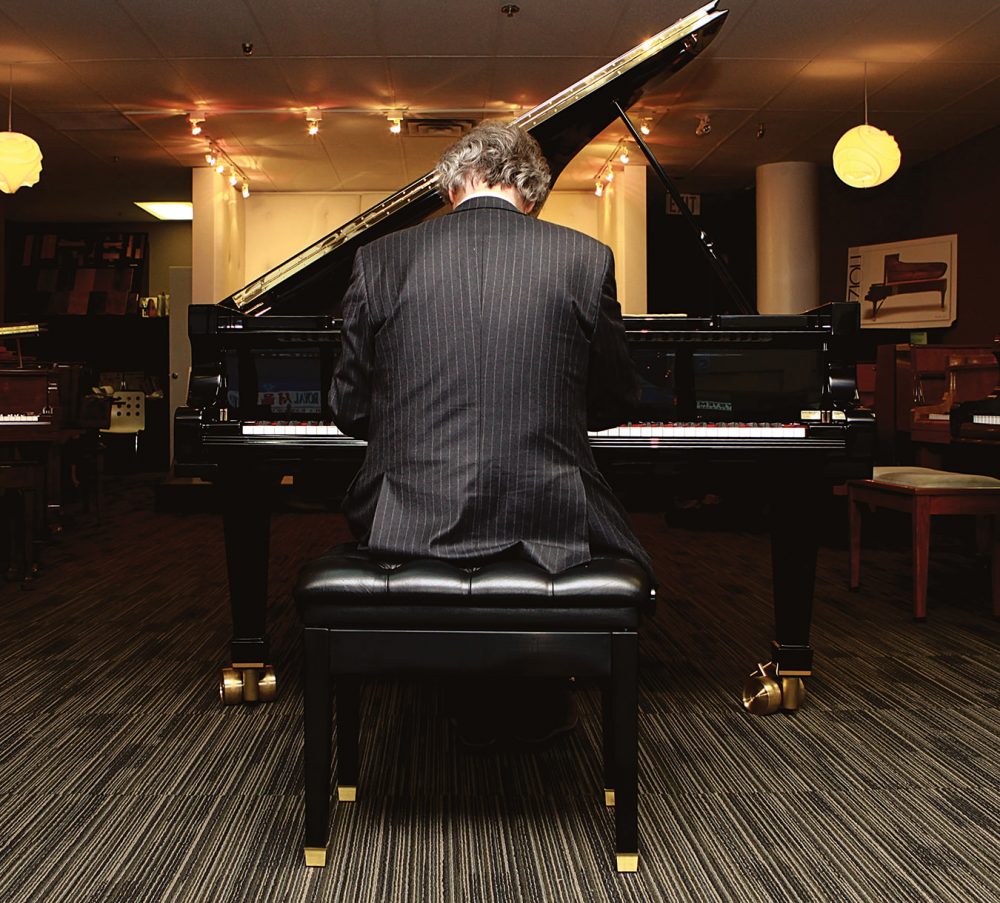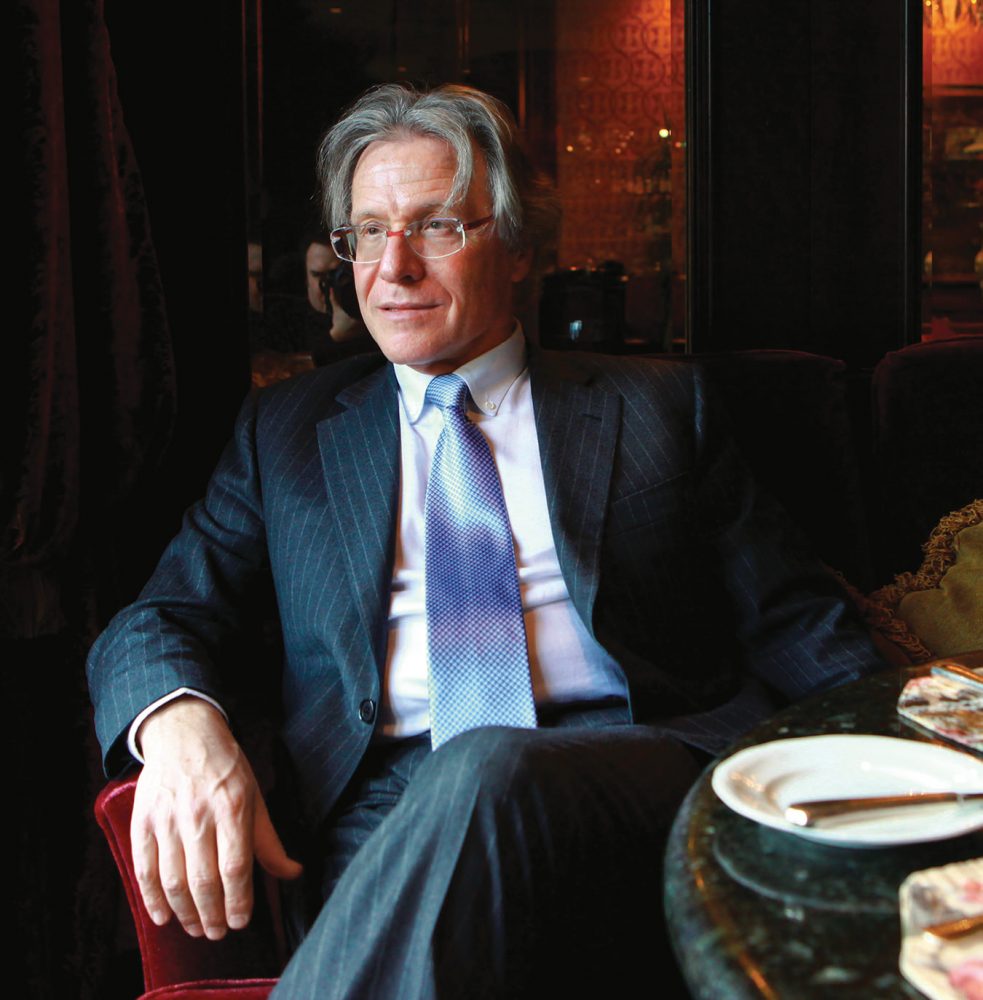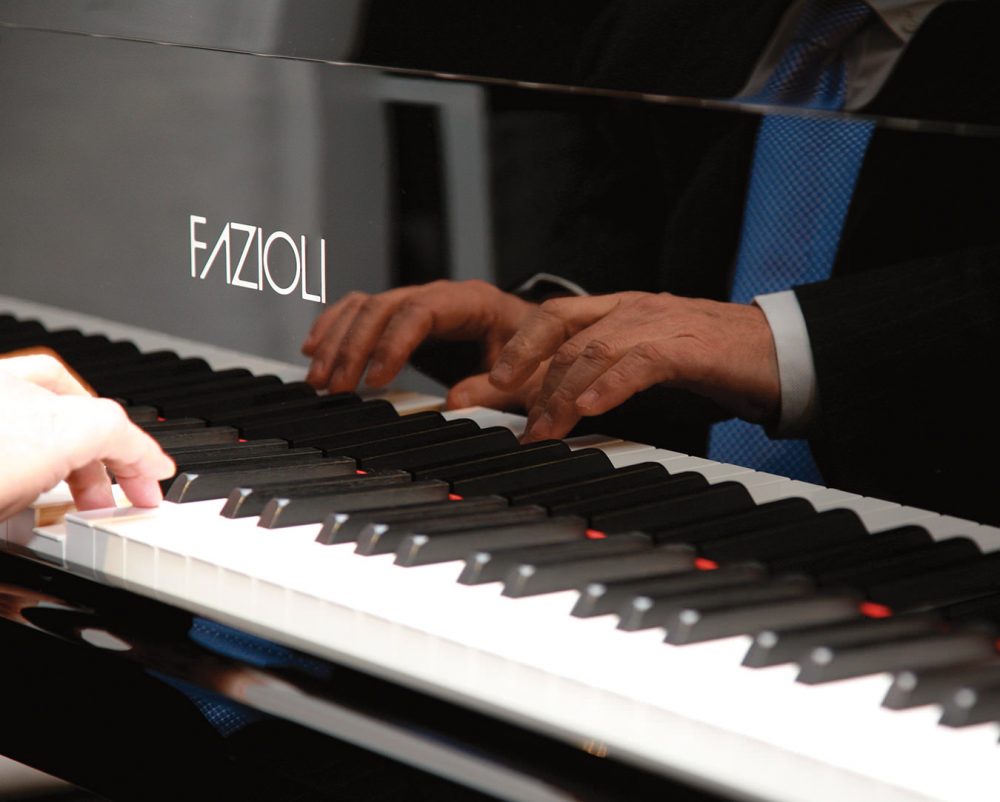It all started with a disgruntled piano player, whose family could afford only a claptrap, beat-up instrument for him to play. The sound was terrible, and eventually he took the whole thing apart in an effort to get better sound. The task proved impossible, but a seed was planted in young Paolo Fazioli.
While he continued to study piano, he also studied engineering in order to make a career at his family’s furniture production company. The thought of building a better piano stayed with him, though, and in 1978 he left the family business to make pianos. “It was very difficult at the beginning,” says Mr. Fazioli. “I knew all the steps in making a piano, certainly, and I studied with small companies who were making pianos. But the real issue was, for a piano of that quality, ‘How does it age?’ That was the question, and many were skeptical about my pianos. Wood ages, and a piano takes on a warmer sound as it ages.”
Time, as it turns out, has been kind to the Fazioli pianos. He still remembers completing his very first, simply because “I have this same experience with every piano we make. Not a single instrument leaves the factory without me inspecting it, and that includes playing it.” He has, in fact, an entire, carefully thought-out repertoire with which to test every facet of each piano’s sound. “I play a variety of pieces. Each composer has different sounds I can listen for. Mozart—softer, gentler—for example, and I even play modern pieces by Schoenberg. The range of pieces helps me assess the piano’s full range.”
The quintessential Fazioli “action” is remarkably light, nimble even, and many fabulous pianists are enthralled, including Canada’s own Angela Hewitt and Louis Lortie. Mr. Lortie says, “The Fazioli is remarkable in its consistency of action, and of sound.” Production, however, is limited to just over 100 pianos each year.
Mr. Fazioli says, “People who are looking for colour tend to like our pianos.” A magnificent Fazioli stands in the lobby of the new Shangri-La Hotel in Vancouver, and Mr. Fazioli expresses satisfaction at its sound. “It is fine. And I know now it will age well, too. I have followed the evolution of our pianos.” It is another example of the marriage of engineering and art he likes to call a piano.











